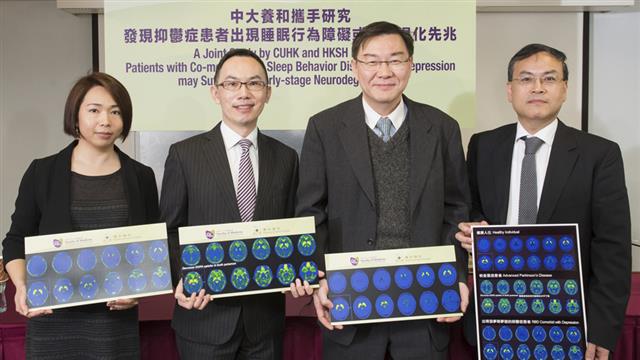A study jointly conducted by CUHK and Hong Kong Sanatorium & Hospital (HKSH) on the relationship between rapid eye movement sleep behavior disorder (RBD), depression and neurodegeneration revealed that patients with comorbid RBD and depression may suffer from early phase of neurodegeneration. Early diagnosis is essential for monitoring and treatment of neurodegeneration. The findings were published in the February issue of a leading international journal Neurology.
Twenty-nine subjects including cases of comorbid RBD and depression, subjects with depression only and healthy subjects, with a mean age of 47, were recruited for clinical, polysomnographic assessment and neuroimaging studies. None of them suffered from any clinical sign of Parkinson’s disease. However, patients with comorbid RBD and depression had a significantly lower 10–30% dopamine neural transmission than the control group. They also had impaired olfactory function. The findings indicated a distinct possibility that the development of the RBD problems among depressive patients may represent an early phase of neurodegeneration instead of a merely antidepressant-induced condition.
For details, please click here.


